In celebration of Asian American and Pacific Islander (AAPI) Heritage Month, USTA Florida is recognizing all those in the AAPI community whose passion and presence continue to fuel the growth and success of tennis — at every level. We’re committed to supporting, elevating, and growing diversity in all aspects of the tennis industry in Florida.
To highlight these individuals, USTA Florida asked tennis players of the AAPI community to describe their experience in the sport, how they got involved, and what tennis means to them.
Poschanun Warakulnukroh
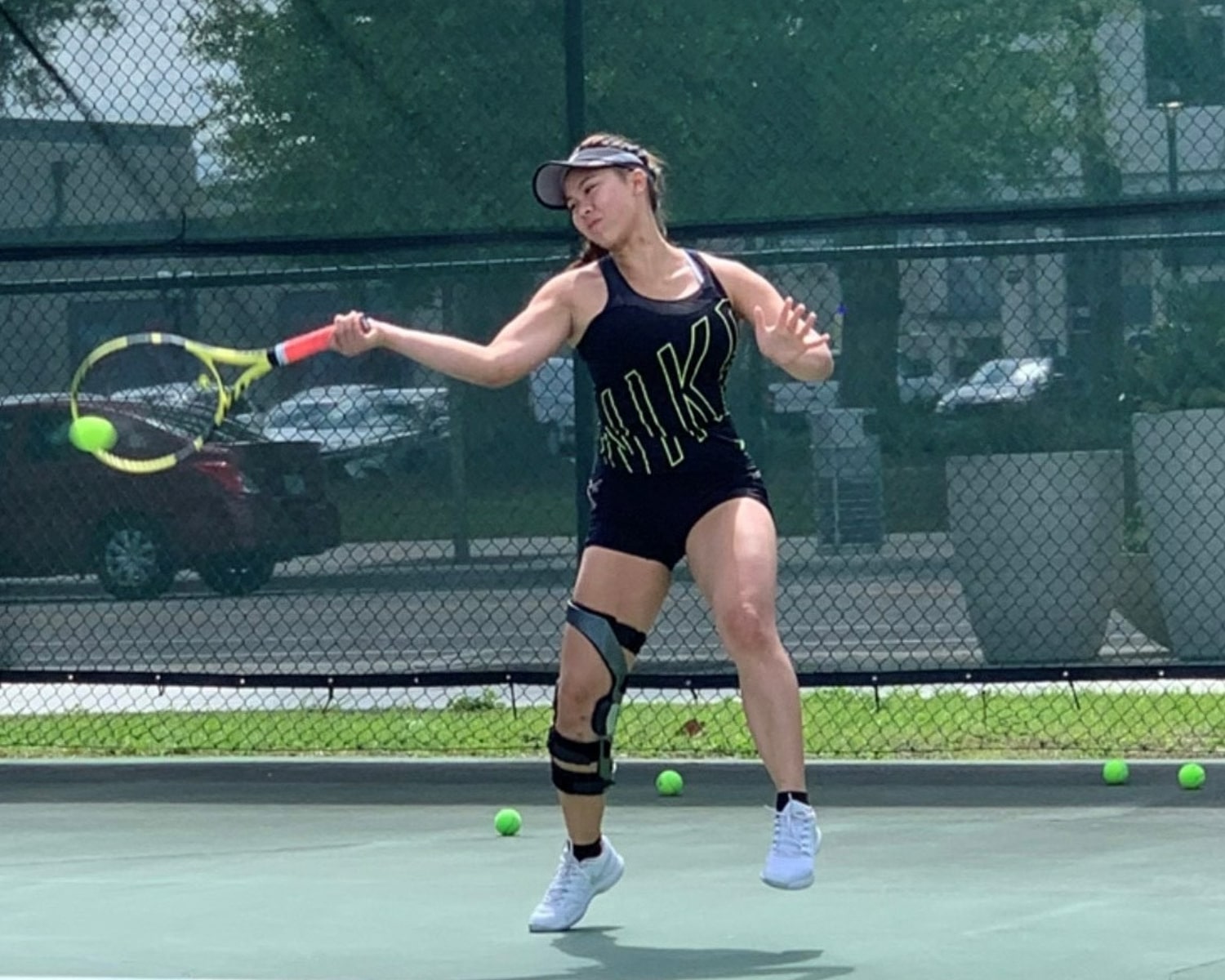
Poschanun Warakulnukroh says that tennis has made her the person she is today.
What role has tennis played in your life, when did you start playing, and how has it helped you?
For as long as I can remember, tennis has always been a big part of my life. I was 5 years old when I first touched a racquet and started playing tennis, and from that day I have not stopped playing.
Tennis has helped me in so many aspects of my life, it taught me life lessons and skills that a person can’t. It has taught me to be tough – mentally and physically – be persistent, and smart. I would not be where I am today without tennis.
Growing up as a Native of Thai, my father who is a musician and has never touched sports at all, has put me and my brother into every sport that he could possibly think of. Tennis, Tae Kwon Do, Gymnastics, you name it, I’ve probably done it all, and hence why sports has always been a major contributing factor for my family.
I have been playing tennis competitively since I was 8 years old and from that, I can say that my proudest achievement is reaching Top 15 for Women’s singles in Thailand’s National Ranking at the age of just 17, and for the ITF Pro Ranking, I have reached a career high of 1851. Tennis has brought me such amazing opportunities one of which I got to represent Adidas in their tennis commercial, which was a memorable and exciting experience and a proud moment as an Asian athlete to represent such a huge brand like Adidas.
How has tennis helped you connect with the Asian Pacific Islander community?
I believe that there are pros and cons to being an Asian athlete. People automatically perceive you as being smart, but at the same time, I have also felt like there is a prejudice towards Asians playing sports.
People underestimate you because you’re Asian and you can’t play sports, all you can do is study. That’s exactly why I want to prove them all wrong and succeed in tennis, just like everyone else can.
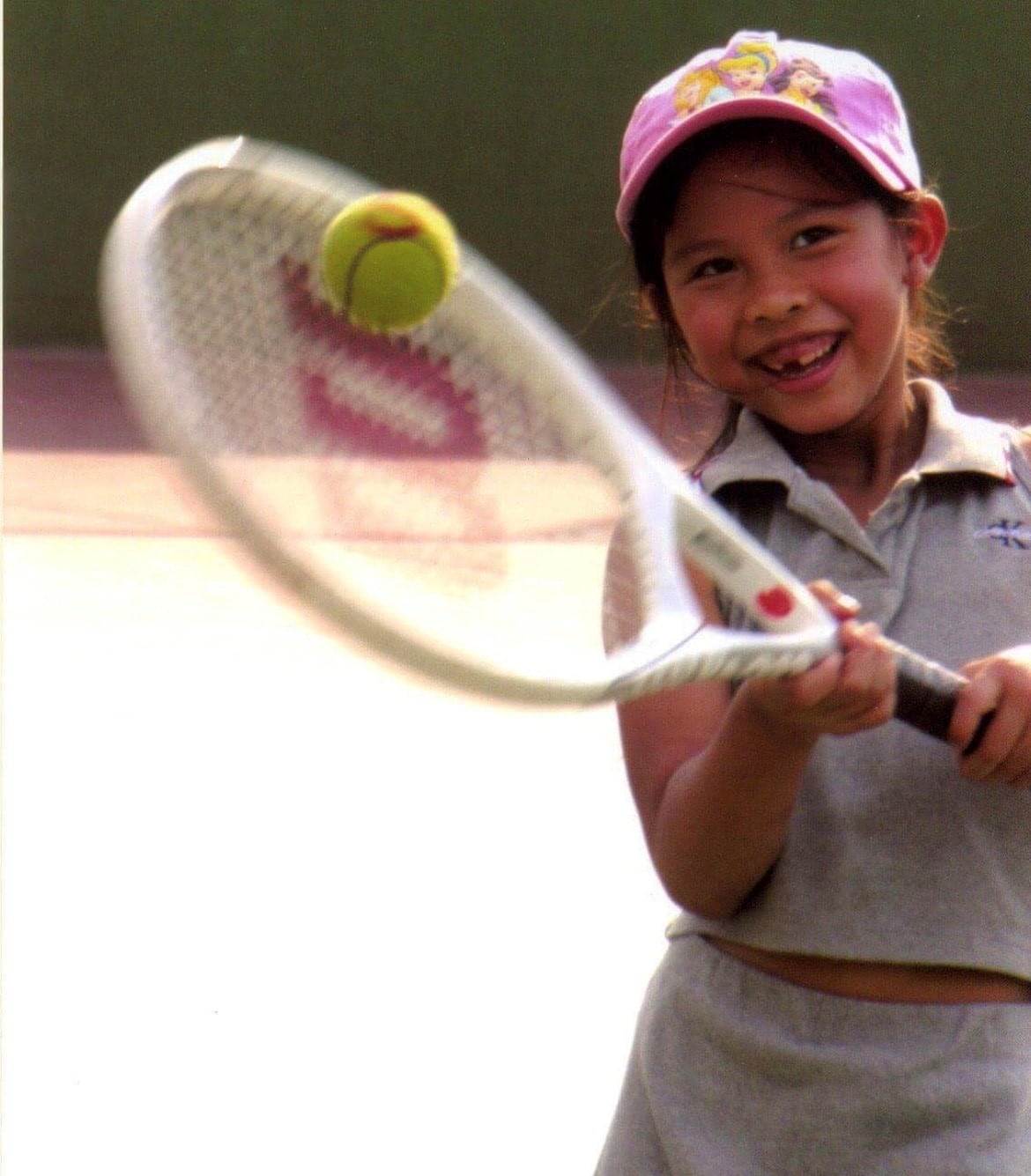
She began playing tennis at the age of 5.
Moreover, tennis has helped me connect with the Asian Pacific Islander community by playing together, helping each other on and off the court, and most importantly supporting each other.
I believe that tennis is a lifetime sport, and anyone can play, kids, adults, elderly, everyone can be active in it! Therefore, it’s also a social sport used to connect the Asian community to be tighter together.
What has been your experience in the sport as a member of the Asian Pacific community?
My experience with tennis as a member of the Asian Pacific community has been nothing but memorable.
We as an Asian community all support each other and try to help each other improve and be better at tennis. There are no judgements, and everyone can just enjoy their time together on court.
Dennis Dullano
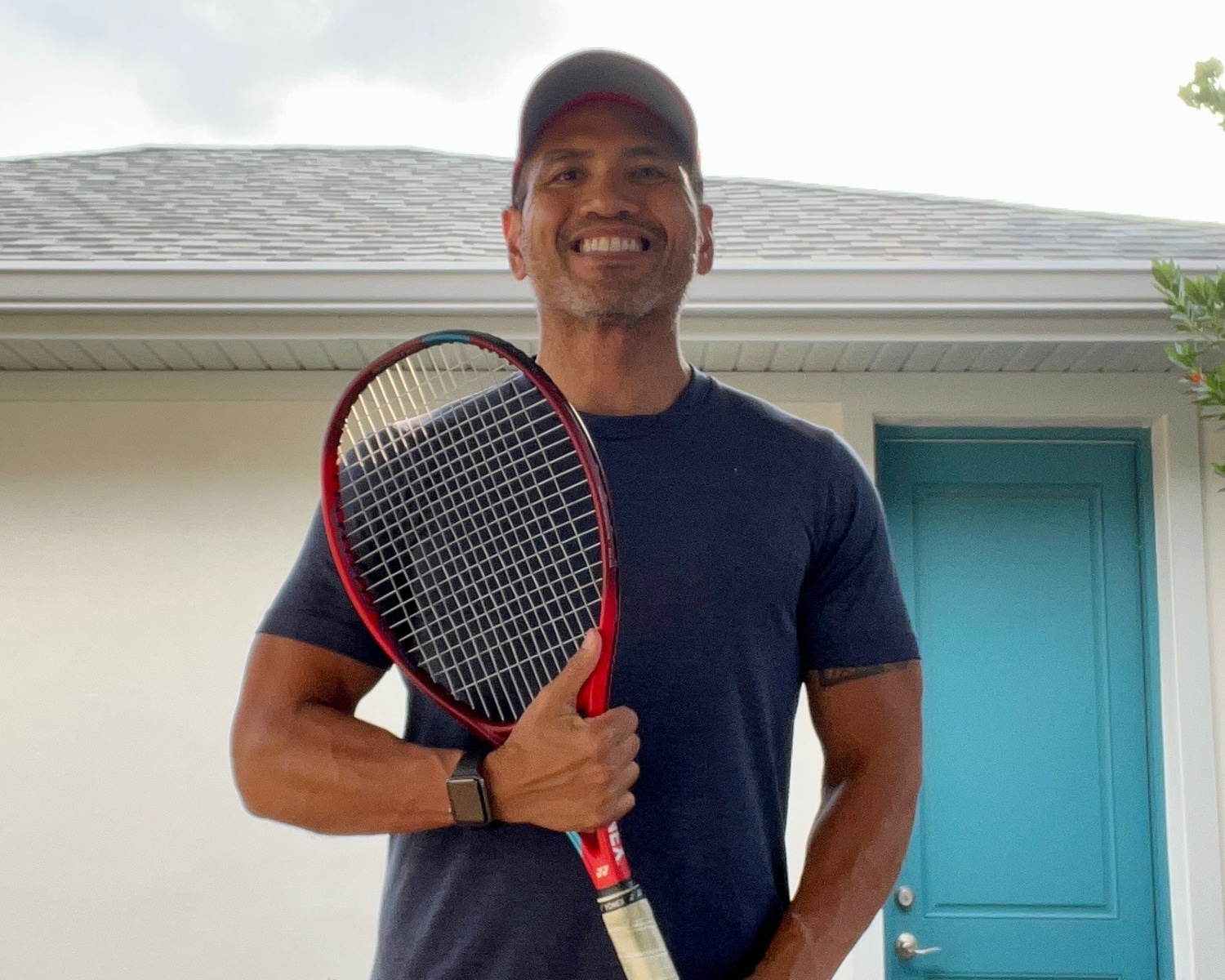
Tennis has helped Dennis Dullano become more social within the AAPI community.
What role has tennis played in your life, when did you start playing, and how has it helped you?
Tennis has been an important part of my life. I was a shy Asian kid and at an early age my parents encouraged me to be well rounded. They wanted me to play a sport to build self-confidence, teach teamwork, and help with shyness.
Growing up, the only sport I liked to watch on television was tennis. I was always in awe at how hard they can hit the ball and have these long grueling rallies. The mental tenacity always mesmerized me. So, I asked my parents if I could take lessons. They enrolled me in a summer tennis camp at the local club.
From there on, I was hooked. Tennis has really helped me come out of my shell and become more outgoing. It has also helped me with hand eye coordination, mental strength, and better deal with stress in pressured situations. I played on the high school team and have played in different leagues and tournaments over the years, which has led me to meet some of my best friends.
How has tennis helped you connect with the Asian Pacific Islander community?
Everywhere I have lived there has always been a big Asian community that loves to play tennis. Any league or tournament I would enter there would be an Asian playing as well. It was never hard to meet other Asians or Pacific Islanders that played tennis.
I lived in Jacksonville, FL, my brother, cousins, and uncles would go to the local tennis courts and meet up with other Filipinos in our community to play tennis. It was so much fun because we would play round-robin tennis. It was nice because tennis is what brought us together.
When we moved to Orlando last year, it was not hard to find other Asians to play tennis with either. I met another Filipino who told me that he meets with other Asians to play tennis. I played in the Orlando Blossom Tennis Tournament, which had a large Asian contingent that came from all over. My second-round opponent was Vietnamese, and the end gave each other a hug because we respected each other, and it was overall a fun competitive match. But it was that hug we gave each other because as Asians we knew it was just a natural thing to do.
What has been your experience in the sport as a member of the Asian Pacific community?
My experience has been a positive one. There is no shortage of Asian Pacific Islanders who play tennis. Usually, you can find a group of Asians playing tennis in the mornings on a weekend at many different tennis court. The Asian Pacific community for tennis is strong and very welcoming. We are a friendly community that will hit with anyone regardless of their skill level.
Cici Tong
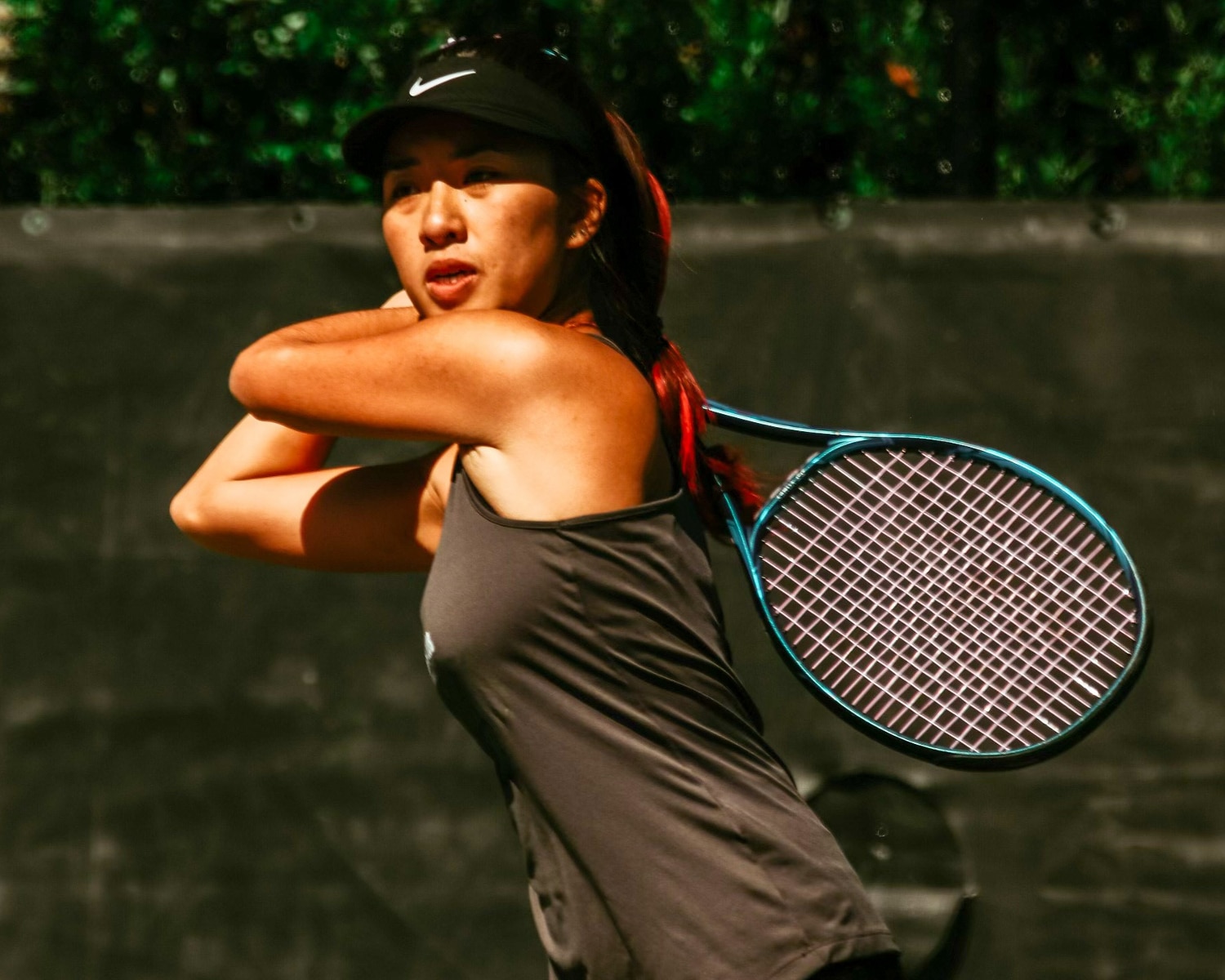
Tong found her passion for tennis when she was just 6 years old.
What role has tennis played in your life, when did you start playing, and how has it helped you?
I started playing tennis when I was 6, so tennis has been part of my life for 16 years now. It’s definitely kept me fit and gave me many opportunities that most people don’t normally get.
How has tennis helped you connect with the Asian Pacific Islander community?
It’s great seeing tennis players in the AAPI community, I’ve been able to meet amazing tennis players in the community and always feel a sense of comradery and connection with them.
What has been your experience in the sport as a member of the Asian Pacific community?
Tennis is predominantly a white sport, (at least it was during my time competing) and so it wasn’t always easy fitting in. An important thing I learned in juniors was to find a group of friends that accepts and embraces you for who you are.
Nannette Kiernan
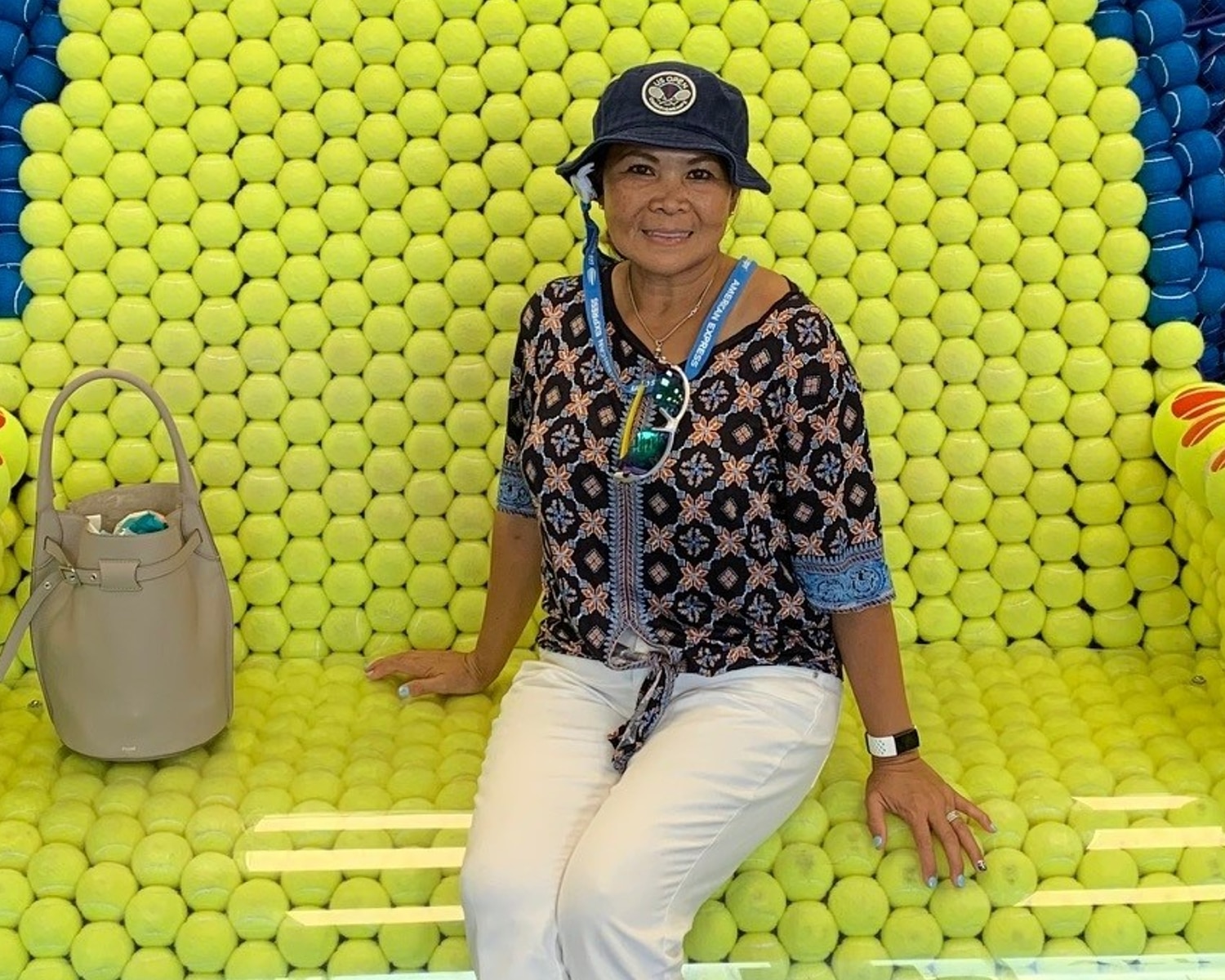
Kiernans proved it doesn’t matter what age you start playing tennis.
What role has tennis played in your life, when did you start playing, and how has it helped you?
I started playing tennis a bit later in life and my interest in the sport started off as a tennis Mom. During summer camp one year I picked up those collection tubes and picked up balls for them, but eventually I picked up a racket and started taking lessons and joining Cardio tennis.
Tennis has enriched my life as a whole and I’ve met so many friendly, compassionate, and passionate fellow tennis players.
How has tennis helped you connect with the Asian Pacific Islander community?
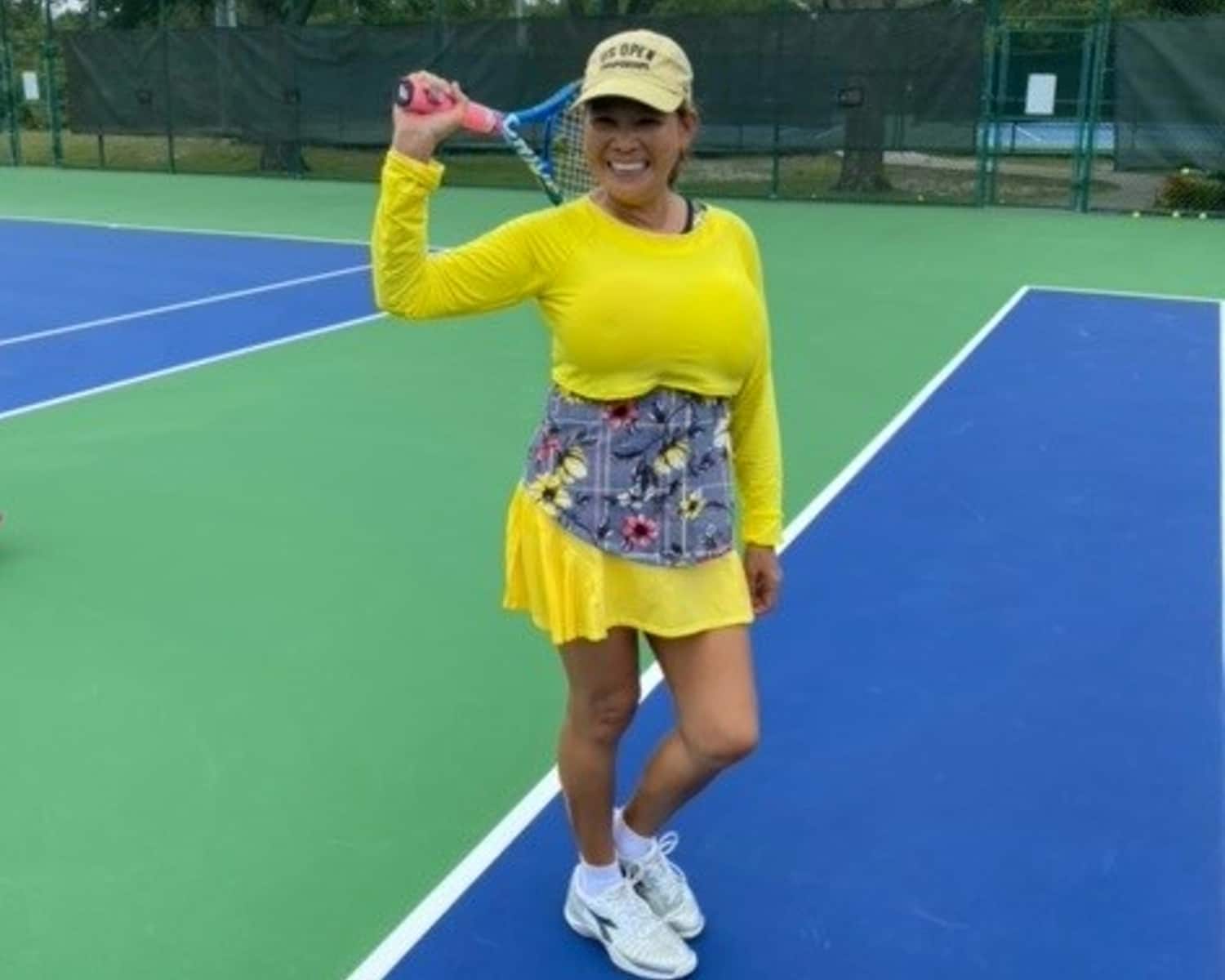
The AAPI community helped her stay active in tennis when she moved to Florida.
We moved to Florida 8 years ago, without knowing anyone and looking for activities to become active. The AAPI community has helped me integrate into the Florida tennis community.
It’s always helpful to be able to relate with people that grew up in a similar culture and often share the same values. In addition, sharing the same language from time to time with other members of the AAPI tennis community is comforting.
What has been your experience in the sport as a member of the Asian Pacific community?
The AAPI community is known for their hospitality and friendly nature. That extends to tennis both on and off the court.
Claire Fitzgerald
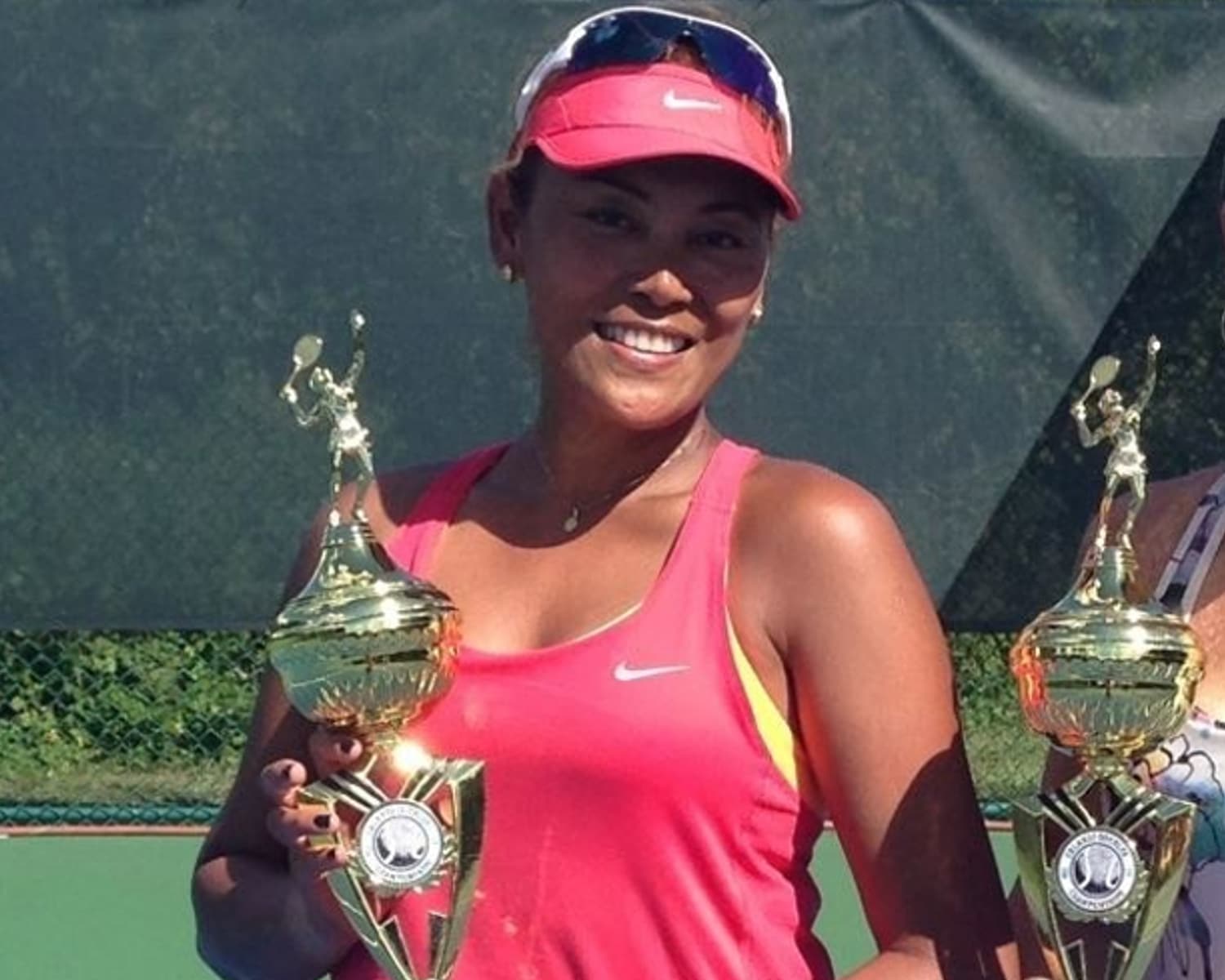
Fitzgerald first began playing tennis in Saudi Arabia, but now plays in USTA Florida Leagues.
What role has tennis played in your life, when did you start playing, and how has it helped you?
I started playing late in my adult life, I was 28 years old, and a young wife living in Saudi Arabia. There wasn’t much where we lived at the Military Campsite beside a swimming pool, basketball court and tennis court.
Being so far from my family and friends I felt homesick, so I decided to buy a couple of tennis racquets and a can of balls. My husband showed me the basics of the game and how to serve. Every day I would hit the ball hundreds of times against the wall. And before I knew it, I was playing matches against the pilots.
Tennis has changed my life, it helps me stay motivated, focused, disciplined and inspired. It also made me understand how to control my emotions on and off the court. It is my ultimate outlet of everything I have been through in life in the past 20 years.
When we moved to the Riyadh, I met an American coach, who offered to train me. However, I couldn’t afford his coaching fees. He offered me a trade, I assisted him with running his tennis program, and in return I got free coaching.
In no time my game improved, and I started playing leagues in Riyadh, that gave me some fond memories. By the time we moved back to the United States, I got my USTA rating as a 4.0, and in just one season I got bumped up to 4.5.
On an annual visit to Orlando, I met Susie Rahimitabar, who was working as a coach for 10 & under programs at Lake Cane Tennis Center. I have since gotten closer with her and now coach 10 & under kids.
Tennis became my therapy, it’s my happy place. I hate going to the gym, so it became my ultimate exercise to keep up with my fitness and stay in shape. It helped me through the toughest moments of my life, and through tennis I made friends with some incredible people, and some became my best friends.
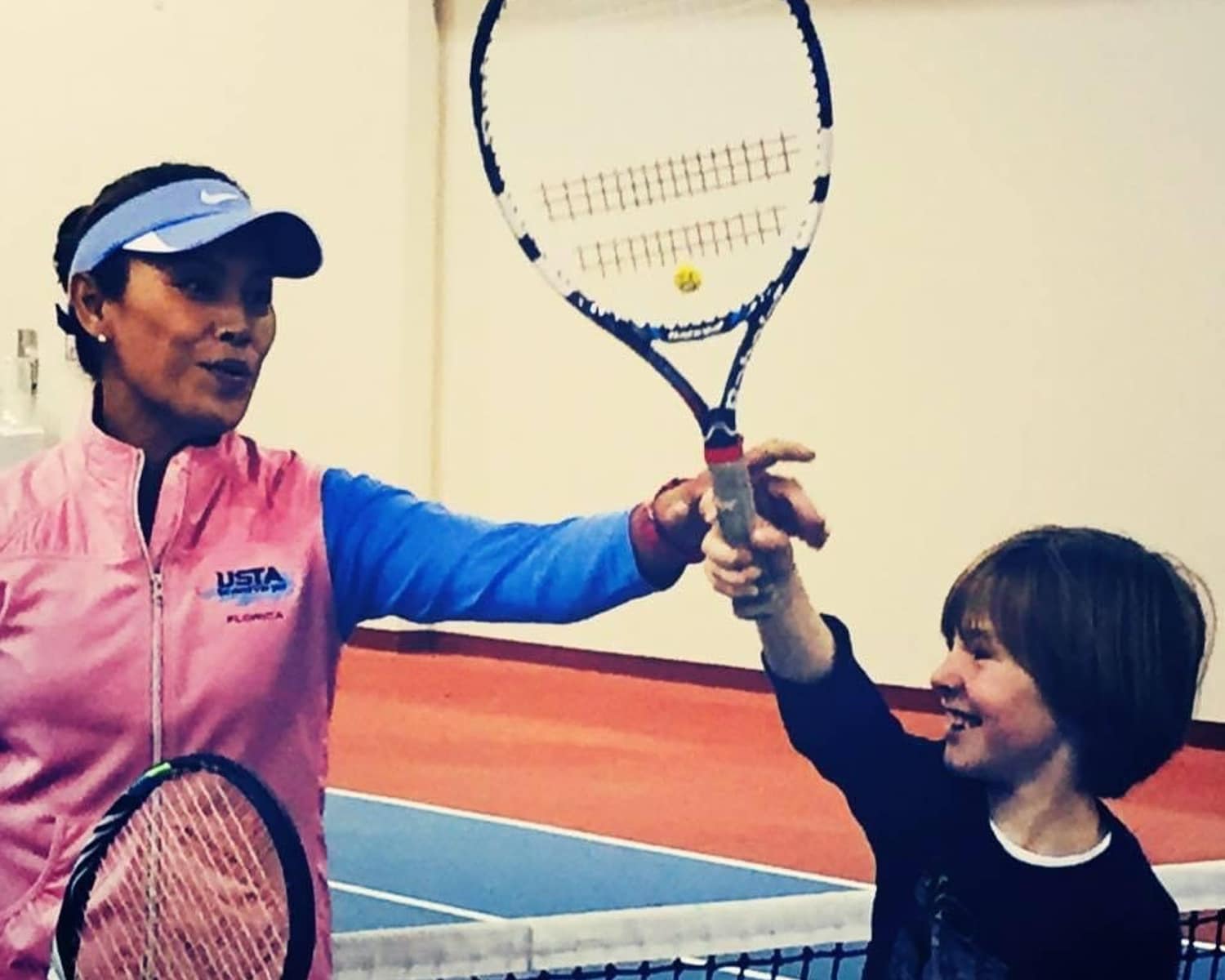
She loves to coach kids and teach them more aspects of tennis.
How has tennis helped you connect with the Asian Pacific Islander community?
Tennis is becoming a more diverse sport. I didn’t realize how big Asian Pacific Islander community is and how involved they are in the sport.
It’s great to find some sense of belonging, and playing tennis gives me an opportunity to meet and connect with my fellow Filipino Americans and other Asian Americans.
What has been your experience in the sport as a member of the Asian Pacific community?
The great thing about playing this sport is once you are on the court, it’s just about the tennis ball and your racquet.
Everybody speaks the same language, competing with the same goal: to win with integrity, good sportsmanship, and make lifetime friendships.


